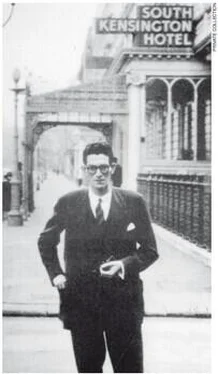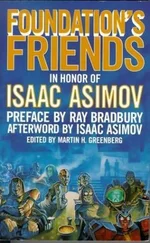Ben Macintyre - A Spy Among Friends
Здесь есть возможность читать онлайн «Ben Macintyre - A Spy Among Friends» весь текст электронной книги совершенно бесплатно (целиком полную версию без сокращений). В некоторых случаях можно слушать аудио, скачать через торрент в формате fb2 и присутствует краткое содержание. Год выпуска: 2014, ISBN: 2014, Издательство: Bloomsbury Publishing, Жанр: Старинная литература, на английском языке. Описание произведения, (предисловие) а так же отзывы посетителей доступны на портале библиотеки ЛибКат.
- Название:A Spy Among Friends
- Автор:
- Издательство:Bloomsbury Publishing
- Жанр:
- Год:2014
- ISBN:9781408851746
- Рейтинг книги:5 / 5. Голосов: 1
-
Избранное:Добавить в избранное
- Отзывы:
-
Ваша оценка:
- 100
- 1
- 2
- 3
- 4
- 5
A Spy Among Friends: краткое содержание, описание и аннотация
Предлагаем к чтению аннотацию, описание, краткое содержание или предисловие (зависит от того, что написал сам автор книги «A Spy Among Friends»). Если вы не нашли необходимую информацию о книге — напишите в комментариях, мы постараемся отыскать её.
A Spy Among Friends — читать онлайн бесплатно полную книгу (весь текст) целиком
Ниже представлен текст книги, разбитый по страницам. Система сохранения места последней прочитанной страницы, позволяет с удобством читать онлайн бесплатно книгу «A Spy Among Friends», без необходимости каждый раз заново искать на чём Вы остановились. Поставьте закладку, и сможете в любой момент перейти на страницу, на которой закончили чтение.
Интервал:
Закладка:
The following Monday, with Philby standing over him, Chantry Page picked up the telephone, dialled the number of the Soviet consulate, and asked the operator for Konstantin Volkov. Instead, he was put through to the consul general. Page phoned again. This time, after a lengthy pause, the telephone was answered by someone who claimed to be Volkov but who spoke good English, which Volkov did not. ‘It wasn’t Volkov,’ said Page. ‘I know Volkov’s voice perfectly well. I’ve spoken to him dozens of times.’ The third call got no further than the telephone operator.
‘She said he was out,’ complained Page. ‘A minute ago, she put me on to him.’ Page’s face was ‘a study in puzzlement’. Silently, Philby rejoiced. The next day, Page called the Soviet consulate again. ‘I asked for Volkov, and the girl said “Volkov’s in Moscow”. Then there was a sort of scuffle and slam, and the line went dead.’ Finally, Page marched over to the Soviet consulate in person, and returned enraged. ‘It’s no bloody good. I can’t get any sense out of that madhouse. Nobody’s ever heard of Volkov.’ Philby was privately triumphant. ‘The case was dead.’ And so, by this point, was Volkov.
The two ‘diplomatic couriers’, hitmen despatched by Moscow Centre, had worked with crisp efficiency. A few hours earlier, two figures, bandaged from head to foot, were seen being loaded onto a Soviet transport aircraft, ‘on stretchers and heavily sedated’. In Moscow, Volkov was taken to the torture cells of the Lubyanka where, under ‘brutal interrogation’, he confessed that he had intended to reveal the identities of hundreds of Soviet agents. Volkov and his terrified wife, Zoya, were then executed.
Philby later reflected that the episode had been ‘a very narrow squeak’, the closest he had yet come to disaster. As for Volkov, Philby dismissed the Russian as a ‘nasty piece of work’ who ‘deserved what he got’.
Konstantin Volkov left no traces: no photograph, no file in the Russian archives, no evidence about whether his motives were mercenary, personal or ideological. Neither his family, nor that of his wife, have ever emerged from the darkness of Stalin’s state. He had been right to assume that his relatives were doomed. Volkov was not merely liquidated, he was expunged.
Philby sent a coded message to Menzies, explaining that Volkov had vanished and requesting permission to wind up the case. In a subsequent report, he proffered several plausible explanations for Volkov’s disappearance: perhaps he had changed his mind about defecting, or had got drunk and talked too much. If the Soviets bugged the consulate telephones, they might have discovered the truth that way. At no point did he even hint at the possibility of a tip-off from the British side. Menzies, comfortable with Philby’s explanations, concluded it was ‘extremely unlikely’ that ‘indiscretion in the British embassy in Istanbul was the cause. The more probable explanation is that Volkov betrayed himself . . . It is quite possible that his quarrels [with the Soviet ambassador] led to him being watched, and that either he or his wife, or both, made some mistake.’
On his way home, Philby stopped off in Rome to visit James Angleton. The strain of the Volkov scare had rattled him, and he proceeded to get extremely drunk. American intelligence knew of the failed defection, and Philby’s desire to see Angleton may have been partly to ‘test the waters’, and find out how the story was playing in Washington. Angleton listened attentively to Philby’s account, and ‘expressed sympathy that so promising a case had been lost’. But the American seemed more preoccupied with his own concerns: he was worried about ‘the effect his work was having on his marriage’ since he had not seen his wife, Cicely, for over a year and ‘felt guilty about it’. Philby was sympathetic. ‘He helped me to think it through,’ Angleton said. After three days of bibulous secret-sharing and mutual support, Angleton poured Philby onto a plane, ‘worse for wear of the considerable amount of alcohol he had consumed’.
Settling into his new job, Philby’s life developed a pattern of duality, in which he consistently undermined his own work, but never aroused suspicion. He made elaborate plans to combat Soviet intelligence, and then immediately betrayed them to Soviet intelligence; he urged ever greater efforts to combat the communist threat, and personified that threat; his own section worked smoothly, yet nothing quite succeeded. Information from the defector Igor Gouzenko had enabled MI5 to identify Alan Nunn May, another secret communist recruited at Cambridge, as a Soviet mole working on nuclear research in Canada. May’s method of contacting his Soviet controller was to stand outside the British Museum carrying a copy of The Times . A trap was set, but neither May nor his handler turned up. Philby had tipped off Moscow, just as he almost certainly ‘warned the Centre about other agents identified by Gouzenko who were under British and American surveillance’.
Philby worked closely alongside the other panjandrums of the secret elite of the powerful Joint Intelligence Committee; in formal meetings and private parties, he mixed with the cream of the secret services, people intensely secretive outside this charmed circle, and so indiscreet inside it. Philby’s Section IX gathered information to discredit Soviet dignitaries, it laboured to stimulate defections, glean secrets from former Soviet prisoners of war, and eavesdropped on diplomats and spies. Philby approved every move in the game, and then told Krötenschield, who told the Centre. From his contacts in MI5 and MI6, from Elliott and Angleton, Menzies and Liddell, from every corner of the intelligence machine, Philby extracted secrets to bolster the revolution and stymie the West, and passed on everything, ‘without reserve’, to Moscow.
During the war, the Bletchley Park decoders had enabled Britain to discover what German intelligence was doing. Philby’s espionage went one better: he could tell his Soviet handlers what Britain’s spymasters were intending to do, before they did it; he could tell Moscow what London was thinking . ‘Stanley informed me of a plan to bug simultaneously all the telephone conversations of all staff in Soviet institution [the embassy] in England,’ reported Krötenschield. Thanks to Philby, the Russians were not one step ahead, but two. And they were grateful: ‘Stanley is an exceptionally valuable source . . . His eleven years of flawless work with us is irrefutable proof of his sincerity . . . Our goal is to protect him from discovery.’
Spies love to receive medals they can never wear in public, secret rewards for secret acts. In 1945, Elliott was awarded the US Legion of Merit, although with typical modesty he joked that he had probably been given the medal for rescuing Packy Macfarland, his OSS counterpart in Turkey, drunk, from an Istanbul bar. Early the following year, a grateful Britain appointed Kim Philby to the Order of the British Empire for his wartime work. A few months previously in Moscow, Philby had been secretly recommended for the Soviet Order of the Red Banner in recognition of his ‘conscientious work for over ten years’. By the end of 1946, Philby had achieved something no other spy could boast: the award of three separate medals from nationalist Spain, the communist Soviet Union, and Britain.
Kim Philby, OBE, was increasingly seen by his colleagues in British intelligence as a man marked out for great things: the consummate intelligence professional, the captivating star of the service who had worsted the Germans at the intelligence game and was now leading the fight against Soviet espionage. Stewart Menzies had served throughout the war as Britain’s spy chief, but eventually C would have to pass on the torch. ‘I looked around,’ wrote waspish Hugh Trevor-Roper, ‘at the part-time stockbrokers and retired Indian policemen, the agreeable epicureans from the bars of White’s and Boodle’s, the jolly, conventional ex-Navy officers and the robust adventurers from the bucket shop; and then I looked at Philby . . . he alone was real. I was convinced that he was destined to head the service.’
Читать дальшеИнтервал:
Закладка:
Похожие книги на «A Spy Among Friends»
Представляем Вашему вниманию похожие книги на «A Spy Among Friends» списком для выбора. Мы отобрали схожую по названию и смыслу литературу в надежде предоставить читателям больше вариантов отыскать новые, интересные, ещё непрочитанные произведения.
Обсуждение, отзывы о книге «A Spy Among Friends» и просто собственные мнения читателей. Оставьте ваши комментарии, напишите, что Вы думаете о произведении, его смысле или главных героях. Укажите что конкретно понравилось, а что нет, и почему Вы так считаете.












